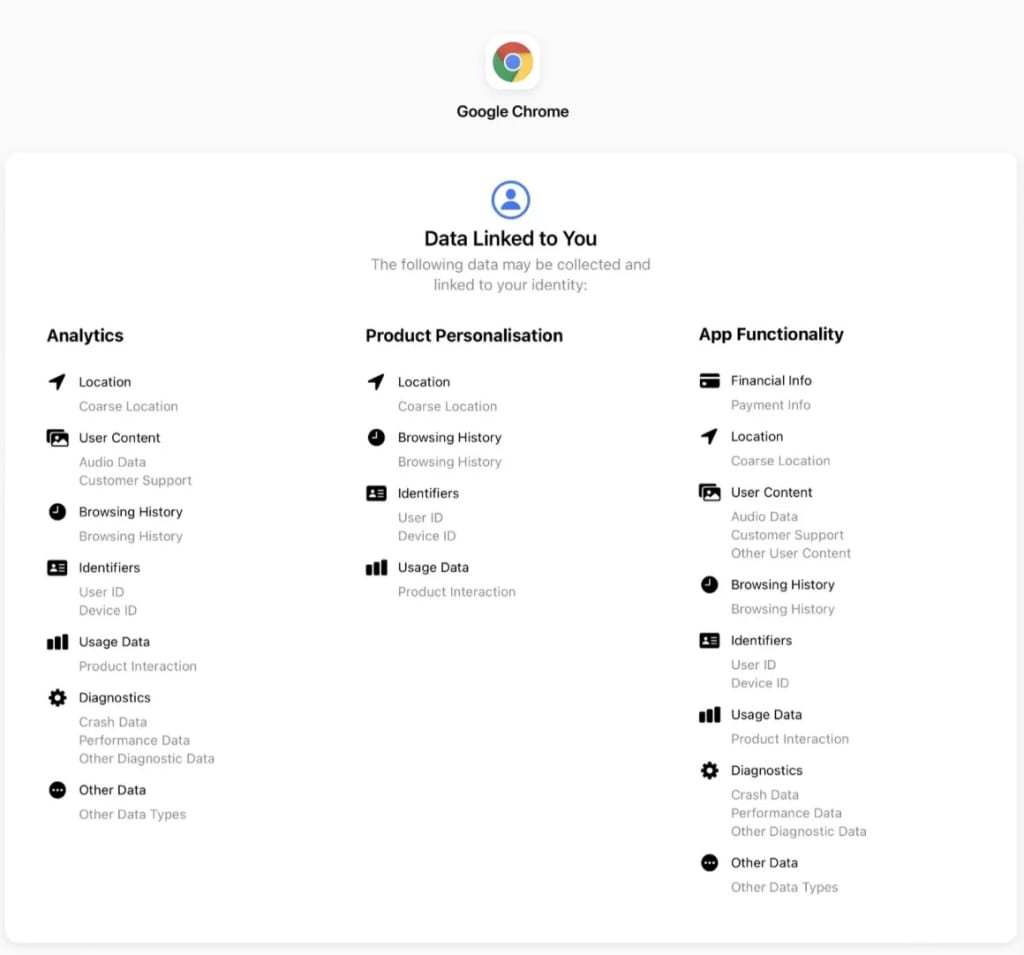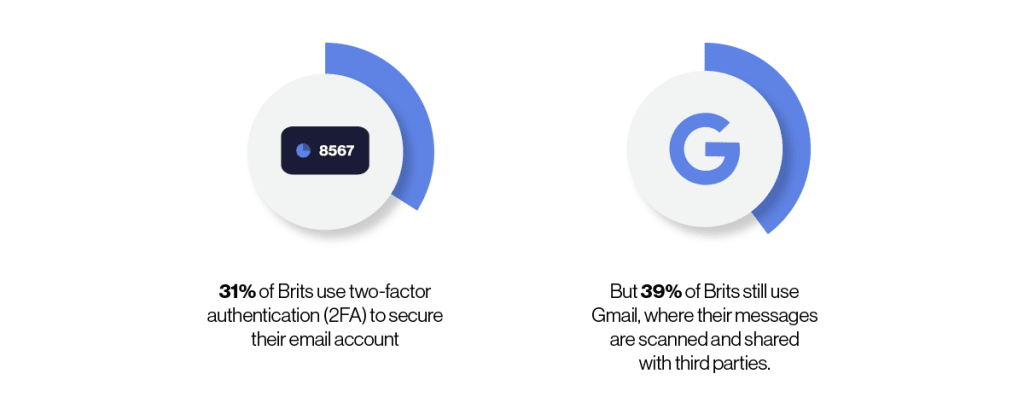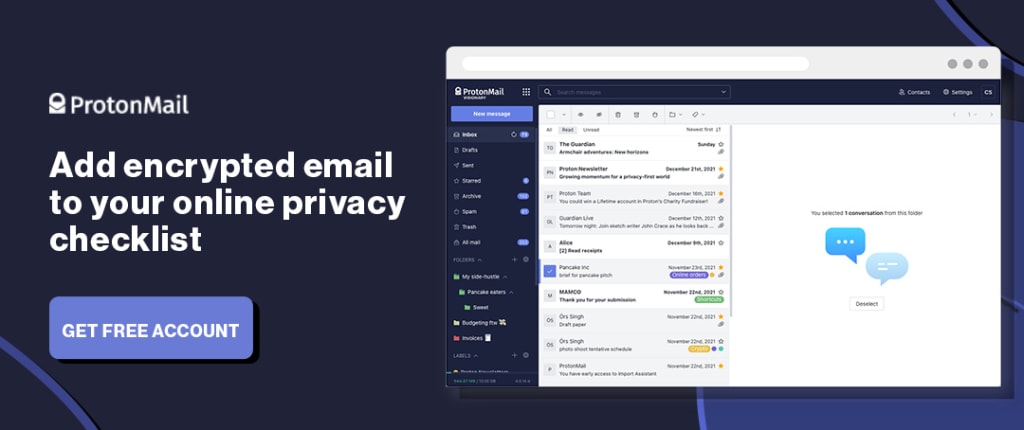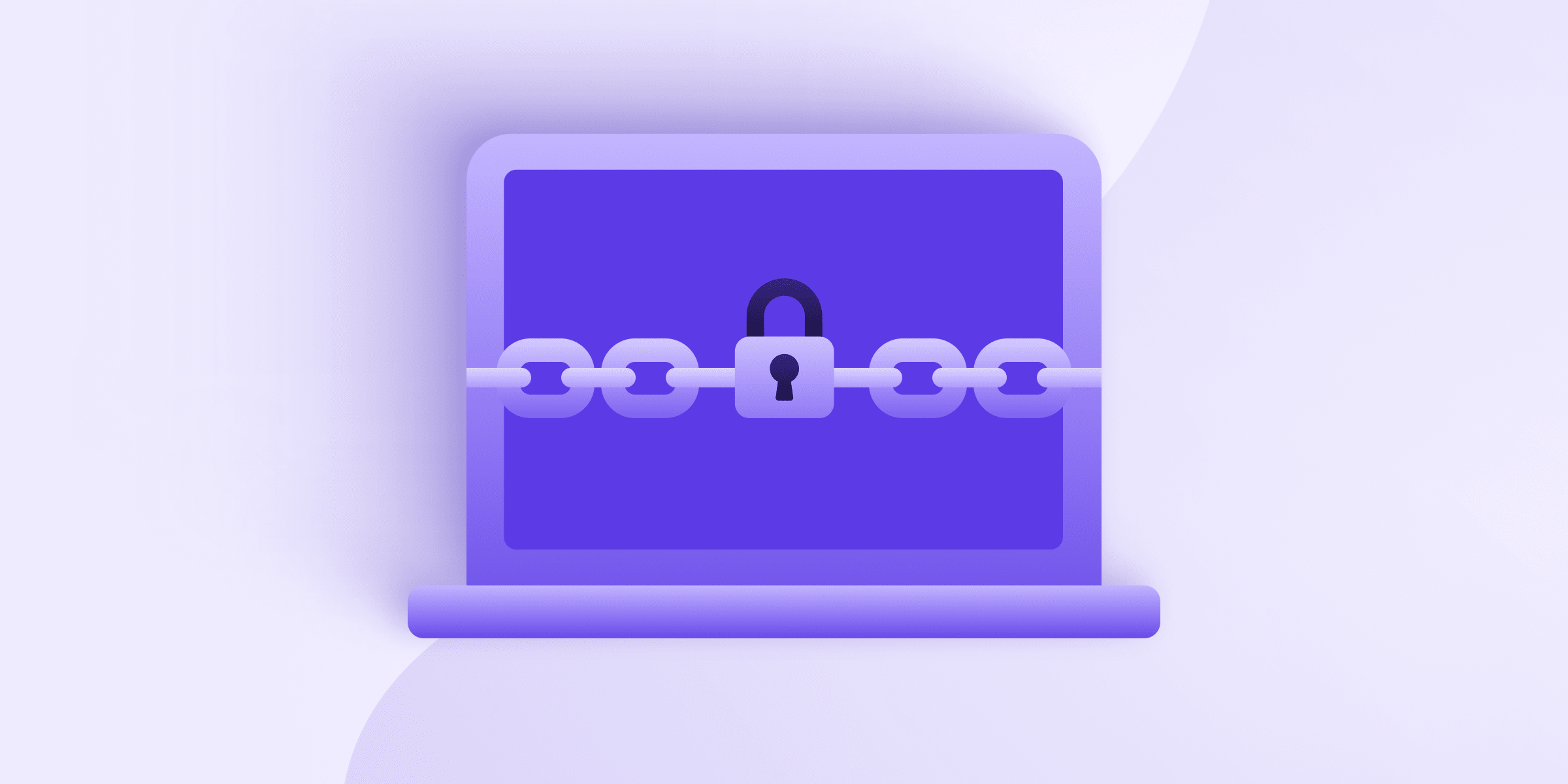According to a survey of 2,070 UK adults, roughly 90% of Brits are worried about their online data remaining private, but 20% don’t use any data protection practices at all.
At Proton, we’re leading the fight for an internet where privacy is the default, and we want everyone to be able to choose what happens to their data. This article explains what steps most Brits take to protect their data — and what you can do to be even more private.
People are looking for privacy in the wrong places
The internet in its current form is dominated by just a handful of Big Tech corporations, which, in turn, overwhelmingly make profits by collecting data that they use to sell targeted ads. This means that many of the most popular online services — Google Search, Gmail, the Chrome browser, WhatsApp, and Instagram, just to name a few — are primarily optimized to generate and collect data from their users.
These services make up the backbone of the vast majority of people’s online presence, meaning mass amounts of their data will be collected regardless of what other precautions they take. (The one exception here being if they go in and turn on all of the privacy controls a service offers, but even this may not stop all the data collection, and many services bury their privacy controls in a maze of menus.)
For example, you may think you are doing a good job of keeping your data safe if you are:
- One of the 33% of Brits who decline marketing cookies
- One of the 22% of Brits who use an adblocker
- One of the 22% of Brits who browse the internet using incognito or private mode
 (new window)
(new window)However, none of that would matter if you use Google Chrome, which exposes your browsing history, device ID, and other personal information to Google and its affiliated third parties.
 (new window)
(new window)But you know better than to trust Google with your data. You use Brave, making you one of the 5% of Brits who protect their browsing history by using a privacy-focused browser. Bravo!
You need a privacy-focused inbox to go with your privacy-focused browser
Since you are using Brave, you’re already ahead of the curve when it comes to protecting your online data, but that only protects your browsing history. Your choice of email provider can have just as big an impact on your privacy. Your email address is the equivalent of an internet passport you use to sign up for online services, and your inbox holds everything from photos of you with friends and family to event invites to banking statements.
If you’re not pairing Brave with a privacy-focused email service — only 3% of Brits use one — your inbox can be monitored and it could undermine the privacy Brave provides you. For example, if you read a website using the Brave browser but then sign up for that website’s newsletter with your Gmail email address, Google will still know what you’re reading.
Nearly one-third (31%) of Brits use two-factor authentication (2FA) to secure their email account, but if you are one of the 39% of Brits that use Gmail, your messages will still be scanned and shared with third parties. Only 9% of Brits are comfortable with the idea that their email contents could be scanned, yet 82% of Brits use email services that do just that.
 (new window)
(new window) (new window)
(new window)Prevent your email service from scanning your emails and protect your data with Proton Mail. We store all emails on our servers using zero-access encryption, which means we cannot access your messages or share them with anyone. It also means your messages would remain secure even if Proton Mail were to suffer a data breach.
Protect your data everywhere
Your privacy is only as strong as your weakest link. To truly protect your data, you need to transition to only using services that treat you as a person with a right to privacy, not as a source of data that can be collected and monetized.
Fortunately, there are now many privacy-focused alternatives for your favorite apps.. The examples below are a good place to start:
- Only 9% of Brits use a privacy-focused search engine. Instead of Google Search, use Brave Search(new window), DuckDuckGo(new window), Qwant(new window), or Startpage(new window)
- Only 13% of Brits use a VPN when they are browsing the internet. A no-logs VPN, like Proton VPN(new window), can prevent your internet service provider from monitoring your online activity.
- Instead of WhatsApp or Facebook Messenger, use Signal(new window)
This is just the start, but each time you switch to a privacy-focused service, you decrease how much of your personal information can be collected. This is the most effective way to protect your online data.
We hope our next survey shows that everyone has joined the fight for online privacy.
This survey was conducted by YouGov in November 2021.











